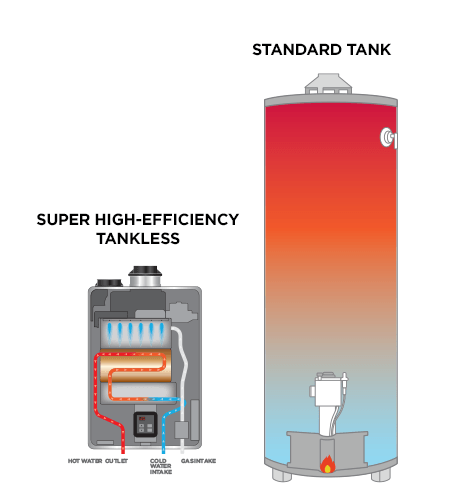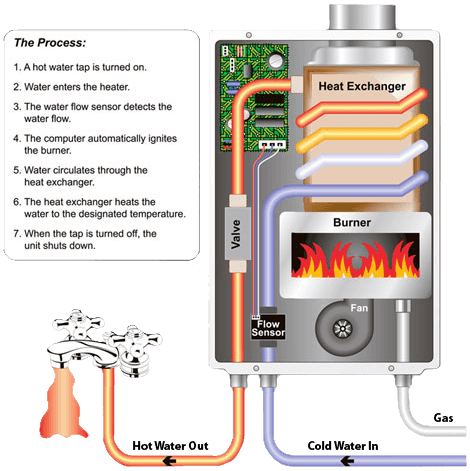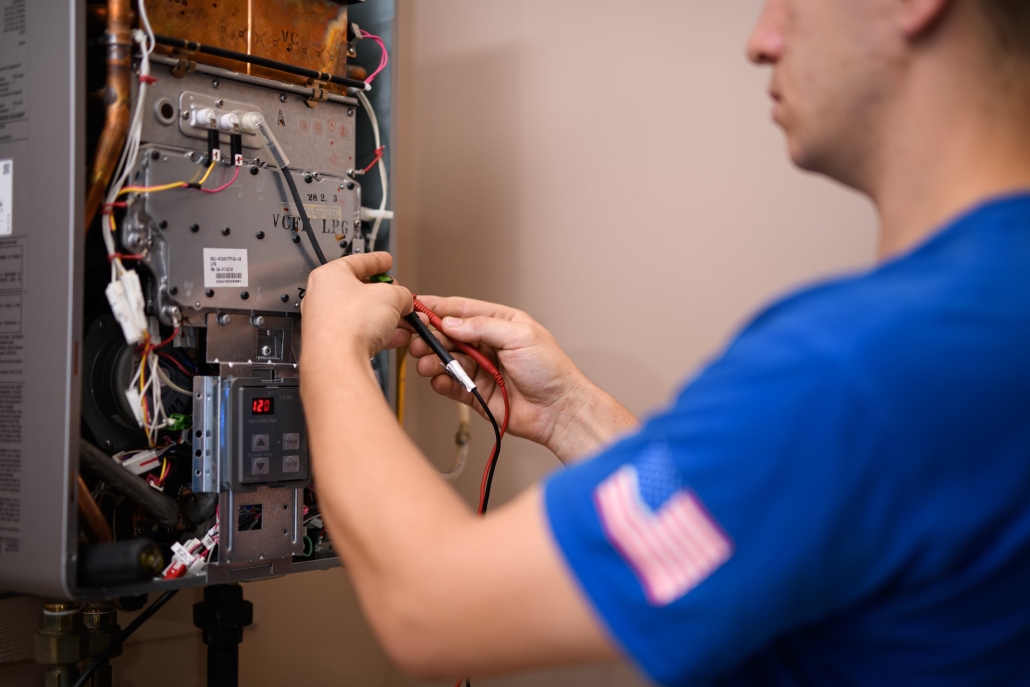The Ultimate Guide to Upgrading to Tankless Water Heaters in Raleigh NC
Tankless Water Heaters —Are you tired of running out of hot water during your morning shower or simply looking to save on your energy bills? Upgrading to a tankless water heater might be the solution you've been searching for. A reliable hot water supply is essential in Raleigh, NC, where the climate can be unpredictable. This guide will walk you through replacing your old tank water heater with a new, efficient tankless model. From understanding sizing and zone specifications to navigating local permits, we've got you covered.
Assess Your Current System
Before making the switch, evaluating your current water heating setup is essential. Start by identifying the type of water heater you currently have. Is it electric, natural gas, or propane? Understanding your existing energy source will help you determine the most compatible tankless model.
Consider the capacity of your current tank. A typical tank water heater holds between 30 and 50 gallons, but tankless systems work differently. They heat water on demand, so you only need a small storage capacity. Instead, you must assess your household's peak hot water demand. How many showers, dishwashers, and washing machines might be running simultaneously? This information will be crucial in selecting the right tankless unit.
Finally, note the age and condition of your current water heater. An older system might indicate outdated plumbing or electrical wiring, which could affect the installation of a new tankless heater. If you're uncertain about the state of your current setup, it's always a good idea to consult a professional.

Choose the Right Tankless Unit
Choosing the right tankless water heater for your needs involves understanding the different available types. Raleigh, NC, has three main options: natural gas, electric, and propane. Each has its advantages and considerations.
Natural gas tankless heaters are famous for their efficiency and lower operating costs. They heat water quickly and are an excellent choice for larger households. However, they do require access to a natural gas line. Always check if it's available in your area and at your home.
Electric tankless heaters are versatile and can be installed almost anywhere. They are ideal for smaller households or point-of-use systems in specific home parts. Large electric units require significant power, possibly necessitating an upgraded circuit panel.
Propane tankless heaters offer similar benefits to natural gas but are often used in rural areas where natural gas lines aren't available. They provide efficient heating but may involve higher fuel costs than natural gas.
Obtain Necessary Permits
In Raleigh, NC, switching to a tankless water heater requires adhering to local building codes and regulations. Before installation, you'll need to obtain the necessary permits. This ensures that your new system complies with safety standards and is installed correctly.
Start by contacting your local building department or permit office. They will provide information on the specific permits required for your project. Typically, you'll need permits for plumbing and electrical work and any structural modifications if your new unit requires additional space.
Hiring a licensed contractor or plumber can simplify the permitting process. They are familiar with local regulations and will ensure your installation meets all necessary codes. Additionally, a professional installation often comes with a warranty, providing peace of mind for your investment.
Installation Process
Installing a tankless water heater involves several steps and should ideally be handled by a qualified professional. Here's what you can expect during the process.
Firstly, the old tank water heater needs to be removed. This includes disconnecting water, gas, or electric lines and safely disposing of the old unit. Next, the new tankless system is mounted, typically on a wall, which frees up floor space.
Once the unit is securely installed, the appropriate connections are made. This involves securing gas lines and ensuring proper venting for natural gas or propane heaters. Electric units require wiring to be connected to your home's electrical system and, as mentioned, may need a circuit panel upgrade.
Finally, the system is tested to ensure it functions correctly and efficiently. The installation professional will check water flow rates and temperature settings to verify that your new heater meets your household's needs.

Cost Considerations
Switching to a tankless water heater is an investment, so it's essential to understand the associated costs. While the initial purchase price of a tankless system can be higher than that of a traditional tank, the long-term savings often justify the expense.
Tankless units typically last longer—up to 20 years compared to traditional tanks' 10-15 year lifespan. Their on-demand heating capability means you only pay for hot water when needed, reducing energy bills significantly.
Installation costs vary depending on the job's complexity and whether additional work, like upgrading electrical panels or gas lines, is necessary. Getting multiple quotes from reputable contractors in Raleigh, NC, is wise to ensure you're getting a fair price.
Maintenance
Maintaining your tankless water heater will ensure its longevity and efficiency. Fortunately, these systems require less maintenance than traditional tanks, but some crucial tasks remain to remember.
Regular descaling is essential, especially if you live in an area with hard water. Mineral buildup can affect the heater's efficiency and lead to potential issues. Most manufacturers recommend descaling the unit once a year.
It's also essential to check and clean the system's filters regularly. Blocked filters can impede water flow and reduce efficiency. Refer to your unit's manual for specific maintenance instructions, and consider scheduling an annual service check with a professional.
Space Requirements
One of the appealing features of tankless water heaters is their compact size. Unlike bulky tank systems, tankless units can be mounted on walls, freeing up valuable floor space in basements or utility rooms.
Consider the location of your current water heater and whether the new tankless system can be installed in the same space. Proper ventilation, especially for gas and propane models, may also affect placement options.
For electric models, proximity to the circuit panel is essential, especially if an upgrade is necessary. Consult with your installer to determine the best location for your new unit based on your home's layout and existing infrastructure.
Conclusion
Upgrading to a tankless water heater is a smart choice for Raleigh, NC, homeowners, property managers, and property owners looking to improve energy efficiency and enjoy endless hot water. Following the steps outlined in this guide, you can transition smoothly and enjoy the many benefits tankless systems offer.
Remember to assess your current system, choose a suitable unit, obtain permits, and hire a professional for installation. Properly maintaining your tankless water heater will provide years of reliable service. Ready to take the plunge? Consult local experts to find the best system for your needs and budget.
Poole's Plumbing the Tankless Pros
Contact Poole's Plumbing's tankless water heater pros if you're considering switching. We've installed thousands of tankless systems across Raleigh, NC, and the Triangle area of North Carolina. Ask about our Best Price Guarantee on water heaters today!






